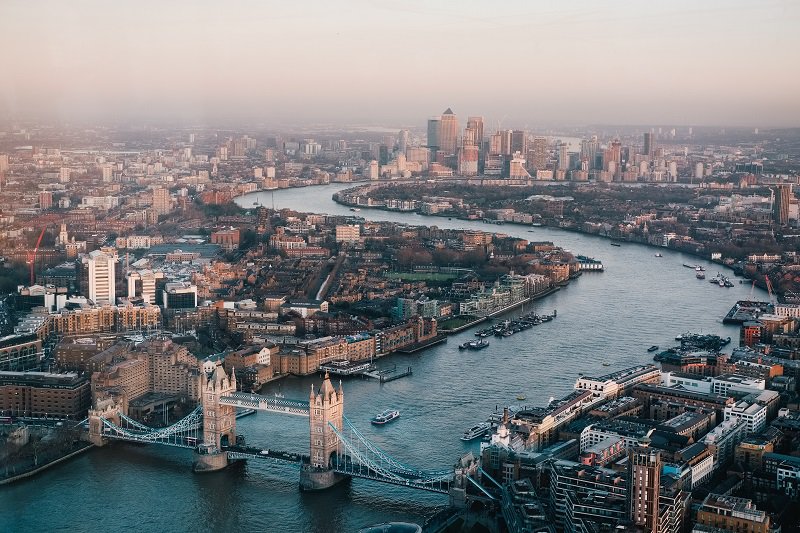International house price roundup – April 2022
New Zealand’s housing market has cooled significantly from the massive growth of the last couple of years, with the latest QV House Price Index even experiencing its largest drop in more than a decade — but how does it compare to the rest of the world?
Let’s find out. Grab your plane ticket and passport, ask your neighbour to collect your mail and feed the cat while you’re away, because we’re about to embark on a brief around-the-world tour of the residential housing markets of Australia, the United Kingdom, United States of America, Hong Kong, and Singapore.
Keep in mind that every international real estate market is its own unique beast, governed by its own set of rules, regulations and disparate market conditions, so though we’ll certainly notice some striking similarities, no two markets are exactly the same.

Australia
‘Panic selling engulfs Australia’s housing market’, ‘Housing crisis officially out of control’, ‘A generation of home owners wake in fright to rising mortgage rates’ — these are just a few of the many doom-laden headlines written recently about Australian housing market.
Looking past the headlines, it’s obvious that the Australian property market has reached a turning point, just as the New Zealand housing market has in recent months.
Rising interest rates, inflation, and the increasing cost of living appears to have put the squeeze on housing affordability, locking many buyers out of the market, even as increasing numbers of sellers look to offload their properties before an expected fall in house prices later this year. Sound familiar?
Recent figures show that home values had fallen slightly in Sydney and Melbourne — though prices are still advancing across Australia generally. Meanwhile, the number of property transactions has also fallen, as they have here, across the ditch in Aotearoa.
Interestingly, regional Australia’s housing market remains relatively resilient compared to the major cities, fuelled by the highest net migration of people from the cities in more than 20 years. That trend is expected to continue (albeit at a slower pace) as people seek more affordable housing outside of the major cities.

United Kingdom
House price growth has surged to its highest level in the United Kingdom since 2004, according to Nationwide Building Society, a British mutual financial institution that publishes a regular house price index.
According to its latest report, the annual rate of house price growth increased from 12.6% in February to 14.3% in March, with the price of a typical UK home climbing to a record high £265,312 (roughly $510,587 NZD according to Google) — that’s 21% higher than before the Covid-19 pandemic struck in early 2020.
Nationwide chief economist Robert Gardner said the continued buoyancy of the UK’s housing demand could be partly explained by strong labour market conditions, as well as significant savings accrued during lockdown helping prospective homebuyers raise a deposit.
Nevertheless, he expected the housing market to slow in the quarters ahead — as a result of a number of factors that will be all-too-familiar to us Kiwis… rising costs and rising interest rates.
“The squeeze on household incomes is set to intensify, with inflation expected to rise further, perhaps reaching double digits in the quarters ahead if global energy prices remain high. Moreover, assuming that labour market conditions remain strong, the Bank of England is likely to raise interest rates further, which will also exert a drag on the market if this feeds through to mortgage rates,” he said.
Meanwhile, the UK housing market just saw its first rise in sales listings in 12 months.

USA
Stop us if you’ve heard this one before — house prices surged to record levels across the US in March, with rising interest rates and inflation helping to make the dream of homeownership even more unattainable for rising numbers of Americans.
Fortune business magazine summed up the situation when it recently wrote that home prices have soared during the pandemic, fuelled by historic low interest rates, with a shortage of houses unable to meet a surge in demand. Fervent competition ensued, and home prices increased by 19.2% over the 12 past months, locking many would-be buyers out of the market altogether.
Now that inflation is back with a vengeance, mortgage interest rates have rapidly risen to a 12-year high, contributing to the rate of housing affordability falling to its lowest rate in the US since 2008. That may also account for why home sales have dropped to their lowest level in two years, even as prices have continued to climb.
“This is exactly what the doctor ordered if you are a Fed official looking to brake the economy and slow demand to fight inflation, but if you are a homebuyer you are getting it from both sides with rising mortgage rates and sky-high home prices that just won't stop inflating,” said Christopher Rupkey, chief economist at FWDBONDS in New York.

Hong Kong
Here’s something a little bit different — residential property prices have been trending downward in Hong Kong since August, with Goldman Sachs expecting them to drop by as much as 25% through 2025 as borrowing costs increase and unemployment rises.
Hong Kong is the world’s most unaffordable housing market, according to survey firm Demographia. House prices have more than doubled here over the past decade, but now a slumping economy and rising interest rates – not to mention a record number of people leaving in the wake of political unrest and strict Covid-19 restrictions – has greatly contributed to what appears to be a growing trend.
“Home prices will remain under pressure at least in the near term,” said Rosanna Tang, head of research for Hong Kong and Greater Bay Area at Colliers International. “In addition to Covid-19, other market uncertainties including geopolitical tension and interest-rate risks are also delaying homebuyers’ decision-making.”
But Hong Kong’s loss looks likely to become Singapore’s gain…

Singapore
The Financial Times reports that expats from Hong Kong are set to boost Singapore’s housing market, which has cooled considerably since its government introduced measures in December to tackle affordability and deescalate the risk of households struggling to pay their mortgages as a result of rising interest rates.
Home values have edged up 0.4% in the first quarter of 2022 — a significant reduction on its 5% rate of quarterly growth in the first quarter of 2021. Aside from the property curbs, which include higher property taxes targeted at wealthier residents, prompting many of them to exit the market, analysts also attribute the softening market to higher interest rates and geopolitical headwinds.
CBRE head of research (South-east Asia) Tricia Song expected demand in the housing market to remain “relatively subdued” in Q2 2022 as buyers digest the cooling measures, though sales volumes could gain traction as attractive projects hit the market.
“In the short term, the residential market could also benefit marginally from safe-haven flows, amid heightened geopolitical uncertainty associated with the ongoing Russia-Ukraine conflict,” she added.
Keep track of all of New Zealand's latest home value movements and more via our interactive QV House Price Index.




